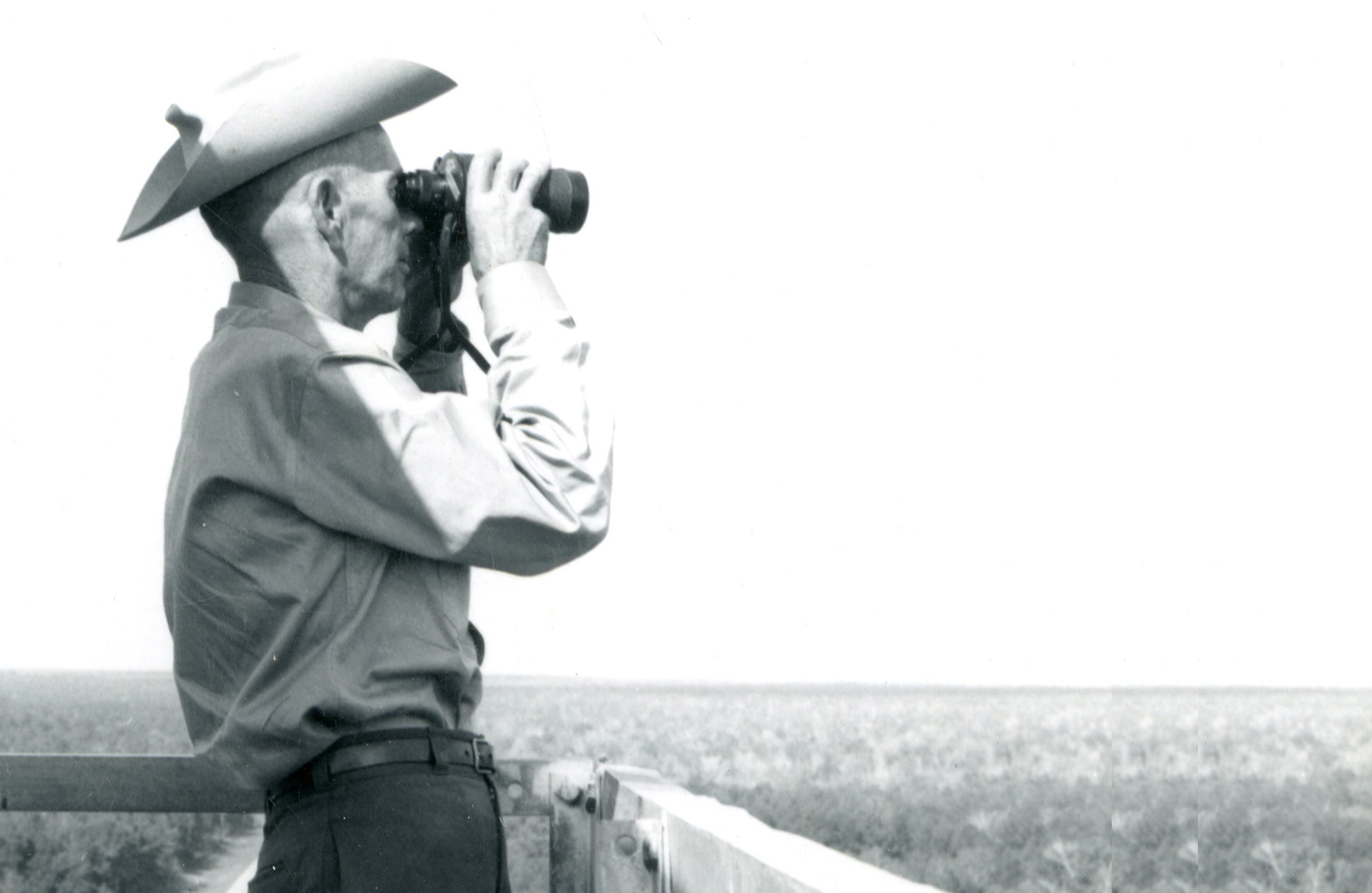

Bruce R. Miles: Texas’ Sixth State Forester (1980 – 1996)
Bruce Robert Miles was selected as the sixth state forester , assuming duties of TFS director on October 29, 1980, two months prior to Director Paul Kramer’s official retirement. Born on the plains of Kansas, Miles and his family moved to Houston in 1942 as WWII was brought to America's doorstep. He was seven years old. His father was a WWI veteran and had accepted a position with the US government as a contract liaison between the US Air Force and Hughes Tool Company. As an electrical engineer working outside many times, his father was tired of Kansas blizzards. Greeted by a hurricane up through Galveston their first week in Houston, Miles recalled his father saying, “We may have made a mistake!” The younger Miles began his college education at Texas A&M in electrical engineering. Summers working in Oregon with the US Forest Service persuaded him that forestry was to be his profession of choice. Back at A&M, he found a wonderful mentor in professor Robert R. Rhodes who was a LSU graduate and taught courses in range and forestry. Professor Rhodes took Miles under his wing his junior year, grounded him in basic forestry, helped him get a scholarship to LSU (paying out-of-state tuition and one round trip bus ticket per year from Houston to Baton Rouge). Miles then completed two years of forestry at LSU including his final year of ROTC military training before reporting to Fort Sill, Oklahoma for his active duty obligation. TFS hired Miles in June, 1959, first as an assistant forester in the Lufkin District. Prior to accepting Paul Kramer’s request to become Assistant Director, Miles worked his way up to district forester with stops in Woodville, Linden, Conroe, and back to Linden. (Diamond 1913) He gained valuable and different experiences with each assignment which prepared him well to serve as TFS director – the first director to rise through the field ranks from “dirt” forester to state forester. In the 1970s and 1980s, the agency was still centered in East Texas and, with some 350 employees, small enough that the director knew most and seemingly took an interest in each. In Miles case, he went out of his way to visit field offices and inquire about employees’ activities and families, freely sharing his sense of humor. His in-house weekly Director’s Notes were used to keep agency employees informed of his own TFS activities while acknowledging achievements of TFS employees at all levels. He was the first TFS director to serve as TFA president (1993). “I did TFA on my lunch hour. Ron (Hufford) does all the work and we (TFA presidents) get all the credit,” Miles modestly stated in a recent interview. (Diamond 2013) During his term as state forester, Miles was involved with development of many innovative forest management programs including the enactment of an industry-funded Texas Reforestation Foundation, or TRe. Under his leadership an expanded wildfire control program and effective southern pine beetle and oak wilt control programs were developed, and the innovative Forest Pest Management Cooperative was initiated. Business, research, and field offices also were equipped with new technology: microcomputers and training on their use. Among awards he has received for his efforts are the Distinguished Service to Forestry Award (1981) and the Gifford Pinchot Medal, both from SAF. In 1982, Miles was given the prestigious TAMU Distinguished Performance Award for Administration. In 2008, he was inducted into the Texas Forestry Hall of Fame. He retired at the end of May 1996, following thirty-seven dedicated years with TFS. He and his wife Dianne were presented with a Life Membership to TFA upon his retirement. In a letter of appreciation for “this unexpected and cherished honor,” Miles stated “The association has certainly been good to me over the past thirty-seven years.” As “director emeritus” he continues to reside in College Station. Without doubt, Director Miles did his part to ensure TFS its reputation as “the best state forestry agency in the nation.”
